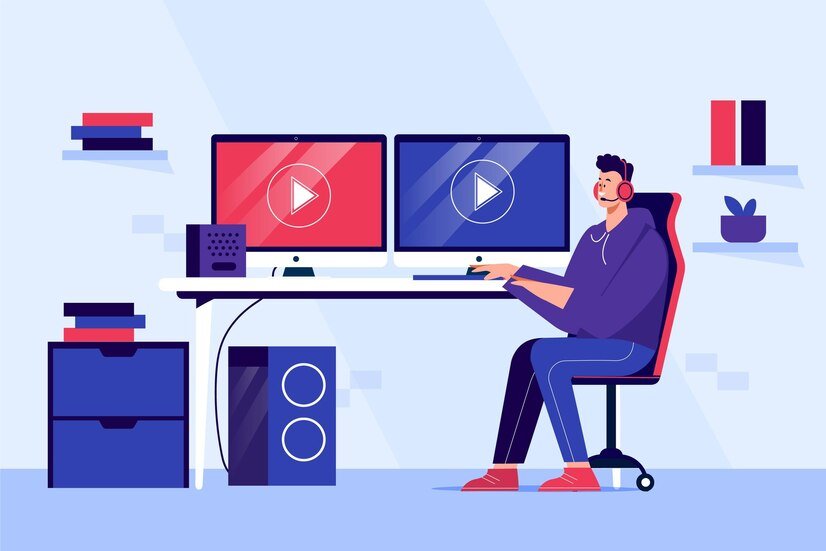Mobile games used to be the black sheep of the gaming family. Nerds wouldn’t touch them with a ten-foot pole. Times have changed, though. These pocket-sized diversions have somehow wormed their way into the hearts of even the most dedicated PC master race devotees.
It’s weird how fast this shift happened. Back in 2020, you’d get laughed out of a gaming convention for admitting you spent serious time on mobile games. Now? Even hardcore nerds are pulling out their phones during lunch breaks to squeeze in a quick session.
The Evolution of Mobile Gaming in Nerd Culture
Nerds have traditionally been picky about their gaming platforms. They’ve typically preferred experiences with deep storylines and complex mechanics – stuff you’d find on consoles or high-end PCs. Mobile games used to be dismissed as “casual trash” unworthy of serious attention.
But something interesting has been happening lately. Rachel Knight from “Love Thy Nerd” points out something that hits home: “When we devalue mobile games, when we talk about them as lesser or illegitimate, we are cutting off part of our own community.” She’s got a point that’s resonating with more people now.
The simple fact is that not everyone can drop $500+ on a console or $2000 on a gaming rig. Most folks already have smartphones, making mobile games the most accessible entry point to gaming culture. Nerds are finally starting to acknowledge this reality.
The numbers back this up. Industry projections show mobile gaming revenue hitting a staggering $105.7 billion by 2025. Player numbers are expected to reach nearly 2 billion by 2027. These aren’t small potatoes – mobile gaming has become the biggest segment of the gaming industry, period.
Card Games and Strategic Thinking: How to Win Rummy and Other Mobile Games
Card games have become particularly popular among the strategy-loving nerd crowd. Games like rummy challenge players to think several moves ahead, appealing to people who enjoy mental puzzles. How to win rummy isn’t about luck – it’s about developing pattern recognition skills and strategic foresight, qualities that nerdy players have in spades.
These card games hit a sweet spot. They’re easy to learn but difficult to master, offering quick play sessions that can fit into busy lives. A round of rummy might take just 5-10 minutes, but mastering it takes much longer. This combination has made card games a gateway between casual mobile gaming and more hardcore experiences.
Some nerds who scoffed at mobile games a few years ago now find themselves debating optimal strategies for digital card games during lunch breaks. It’s a weird turn of events that nobody saw coming.
Breaking Stereotypes: The New Face of Mobile Gamers
The stereotypical mobile gamer used to be imagined as someone’s mom playing Candy Crush. That image is getting shattered daily. The Montana Kaimin ran a story about Dean Klakken III that blows this stereotype out of the water. Klakken isn’t just a National Guard sergeant – he’s also on the U.S. Army Esports team and captains a university esports squad.
Klakken doesn’t fit the lazy gamer stereotype at all. He pushes back against this idea, saying: “I think a lot of gaming stereotypes are more of the inactive side, the lazy like that’s all we want to do, but it’s not really the case. It’s just a cool hobby that we all come together and love to do.”
His teammate Trevor Kleh points out something even more unexpected – the growing overlap between gaming and fitness communities: “I don’t know if it’s more lifters are getting into gaming, but when you go to a gym, there’s a lot of people that watch anime there.”
Buff dudes playing mobile games between sets at the gym? That’s definitely not what most people picture when thinking about mobile gamers, but it’s becoming increasingly common.
The Social Dimension of Mobile Gaming
Mobile games used to be solitary experiences. You’d play Angry Birds alone while waiting for the bus. That’s changed dramatically. According to that SmartyAds article, social features have transformed mobile gaming into something much more community-focused.
It’s pretty wild that two-thirds of the top 50 mobile games now include social features like chat functions, guild systems, or cooperative gameplay modes. These aren’t just tacked-on extras – they’re central to the experience.
For nerds, who’ve always valued community building around shared interests, this social aspect makes mobile gaming much more appealing. Finding out your whole D&D group also plays the same mobile game makes for great conversation fodder during session breaks.
The Future of Mobile Gaming in Nerd Communities
Looking ahead, several trends seem poised to further entrench mobile gaming in nerd culture:
-
AR and VR experiments – Remember Pokémon GO? That was just the beginning. As mobile AR tech improves, we’re seeing more ambitious projects that appeal to tech-savvy nerds.
-
Mobile esports getting serious – Mobile tournaments are offering prize pools that rival traditional esports in some regions. PUBG Mobile and Free Fire competitions draw massive viewership, especially in Asia.
-
Cloud gaming solutions – Services that let you stream high-end games to phones are improving rapidly. This technology could eventually blur the line between mobile and traditional gaming entirely.
-
AI making games smarter – Mobile games are increasingly using AI to create more dynamic experiences that adapt to individual play styles. This technological edge appeals to nerds who appreciate clever implementation.
Conclusion
The relationship between nerds and mobile gaming has evolved from open hostility to grudging acceptance and, in many cases, genuine enthusiasm. As the technical limitations of mobile platforms continue to diminish, the arbitrary distinctions between “real gaming” and “mobile gaming” are becoming increasingly meaningless.
Knight’s observation rings true: “We are all one community of nerds, and we should not cut off some of our numbers simply for the platform they choose.” The future of gaming in nerd spaces looks less platform-specific and more experience-focused.
Maybe the real measure of a good game isn’t whether it runs on a $3000 PC but whether it creates meaningful experiences and connections. By that standard, mobile games have earned their place at the table.





